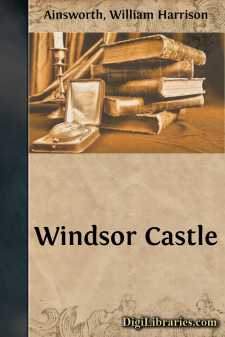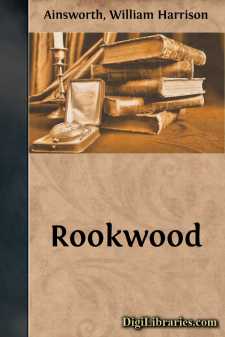Categories
- Antiques & Collectibles 13
- Architecture 36
- Art 48
- Bibles 22
- Biography & Autobiography 813
- Body, Mind & Spirit 142
- Business & Economics 28
- Children's Books 14
- Children's Fiction 11
- Computers 4
- Cooking 94
- Crafts & Hobbies 4
- Drama 346
- Education 46
- Family & Relationships 57
- Fiction 11828
- Games 19
- Gardening 17
- Health & Fitness 34
- History 1377
- House & Home 1
- Humor 147
- Juvenile Fiction 1873
- Juvenile Nonfiction 202
- Language Arts & Disciplines 88
- Law 16
- Literary Collections 686
- Literary Criticism 179
- Mathematics 13
- Medical 41
- Music 40
- Nature 179
- Non-Classifiable 1768
- Performing Arts 7
- Periodicals 1453
- Philosophy 64
- Photography 2
- Poetry 896
- Political Science 203
- Psychology 42
- Reference 154
- Religion 513
- Science 126
- Self-Help 84
- Social Science 81
- Sports & Recreation 34
- Study Aids 3
- Technology & Engineering 59
- Transportation 23
- Travel 463
- True Crime 29
The Star-Chamber, Volume 1 An Historical Romance
Description:
Excerpt
CHAPTER I.
The Three Cranes in the Vintry.
Adjoining the Vintry Wharf, and at the corner of a narrow lane communicating with Thames Street, there stood, in the early part of the Seventeenth Century, a tavern called the Three Cranes. This old and renowned place of entertainment had then been in existence more than two hundred years, though under other designations. In the reign of Richard II., when it was first established, it was styled the Painted Tavern, from the circumstance of its outer walls being fancifully coloured and adorned with Bacchanalian devices. But these decorations went out of fashion in time, and the tavern, somewhat changing its external features, though preserving all its internal comforts and accommodation, assumed the name of the Three Crowns, under which title it continued until the accession of Elizabeth, when it became (by a slight modification) the Three Cranes; and so remained in the days of her successor, and, indeed, long afterwards.
Not that the last-adopted denomination had any reference, as might be supposed, to the three huge wooden instruments on the wharf, employed with ropes and pulleys to unload the lighters and other vessels that brought up butts and hogsheads of wine from the larger craft below Bridge, and constantly thronged the banks; though, no doubt, they indirectly suggested it. The Three Cranes depicted on the large signboard, suspended in front of the tavern, were long-necked, long-beaked birds, each with a golden fish in its bill.
But under whatever designation it might be known—Crown or Crane—the tavern had always maintained a high reputation for excellence of wine: and this is the less surprising when we take into account its close proximity to the vast vaults and cellars of the Vintry, where the choicest produce of Gascony, Bordeaux, and other wine-growing districts, was deposited; some of which we may reasonably conclude would find its way to its tables. Good wine, it may be incidentally remarked, was cheap enough when the Three Cranes was first opened, the delicate juice of the Gascoign grape being then vended, at fourpence the gallon, and Rhenish at sixpence! Prices, however, had risen considerably at the period of which we propose to treat; but the tavern was as well-reputed and well-frequented as ever: even more so, for it had considerably advanced in estimation since it came into the hands of a certain enterprising French skipper, Prosper Bonaventure by name, who intrusted its management to his active and pretty little wife Dameris, while he himself prosecuted his trading voyages between the Garonne and the Thames. And very well Madame Bonaventure fulfilled the duties of hostess, as will be seen.
Now, as the skipper was a very sharp fellow, and perfectly understood his business-practically anticipating the Transatlantic axiom of buying at the cheapest market and gelling at the dearest-he soon contrived to grow rich. He did more: he pleased his customers at the Three Cranes. Taking care to select his wines judiciously, and having good opportunities, he managed to obtain possession of some delicious vintages, which, could not be matched elsewhere; and, with this nectar at his command, the fortune of his house was made....







